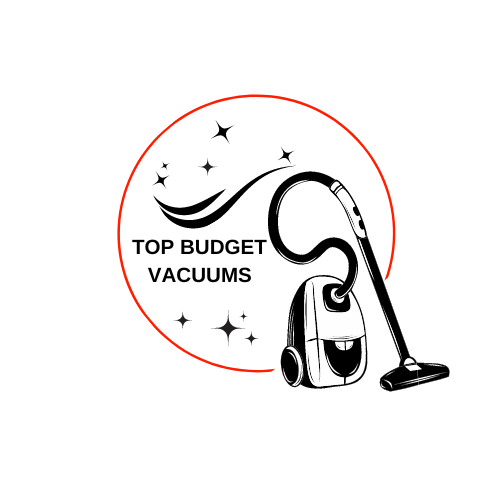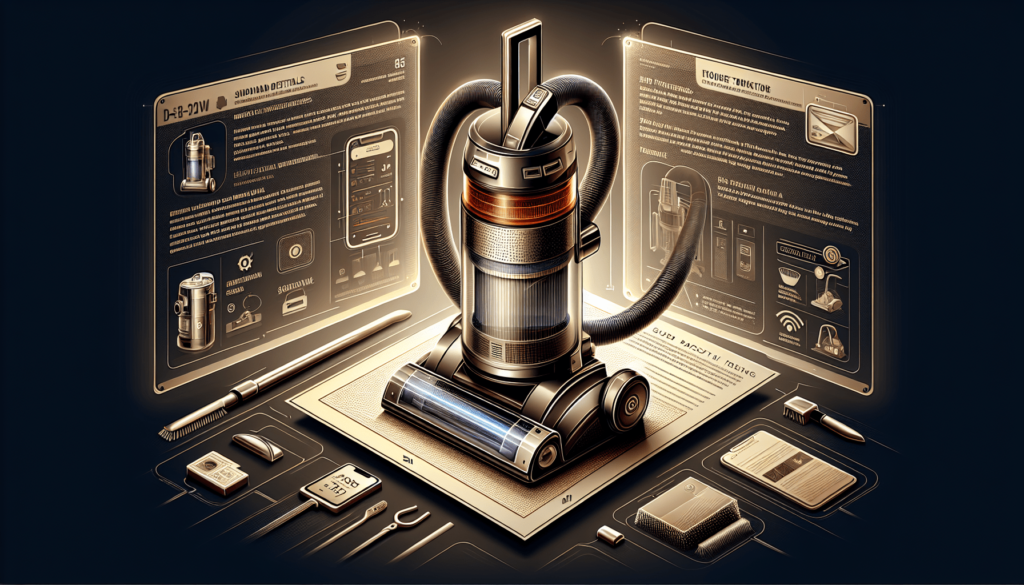Have you ever wondered why vacuum cleaners seem to come with a hefty price tag? Well, the cost of vacuum cleaners can vary depending on factors such as brand, features, and technology. From advanced HEPA filters to powerful suction capabilities, the price of a vacuum cleaner often reflects its quality and performance. So the next time you’re in the market for a new vacuum, remember that investing in a higher-priced model may just save you money in the long run by providing better cleaning results and lasting durability. Why Do Vacuum Cleaners Cost So Much?
Have you ever wondered why vacuum cleaners can be quite expensive? Well, you’re not alone. In this article, we’ll explore the various factors that contribute to the cost of vacuum cleaners and help you understand why they are priced the way they are. So, sit back, relax, and let’s delve into the world of vacuum cleaner pricing!
Quality of Materials and Construction
When it comes to the price of a vacuum cleaner, one of the most significant factors is the quality of materials used in its construction. High-quality materials such as durable plastics, stainless steel, and advanced filtration systems can drive up the cost of production. Cheaper vacuum cleaners may use lower-quality materials that are more prone to wear and tear, leading to a shorter lifespan and potentially costing you more in the long run.
Investing in Durability
Considering the long-term cost-effectiveness of investing in a vacuum cleaner with durable materials is essential. While it may be tempting to opt for a cheaper model, a higher upfront cost for a well-built vacuum cleaner can pay off in the long run by lasting longer and requiring fewer repairs or replacements.
Advanced Features and Technology
Another factor that influences the cost of vacuum cleaners is the inclusion of advanced features and technology. Modern vacuum cleaners may come equipped with features such as HEPA filters, cyclonic suction systems, digital displays, and smart connectivity options. These advanced technologies not only improve the cleaning performance of the vacuum but also increase its production costs.
Smart Connectivity
Vacuum cleaners with smart connectivity options allow you to control them remotely via a smartphone app or voice command, making cleaning more convenient and efficient. While these features can add to the cost of the vacuum cleaner, they can also streamline your cleaning routine and provide a more personalized experience.
Brand Reputation and Warranty
The reputation of the brand and the warranty offered can also impact the price of a vacuum cleaner. Established brands with a history of producing high-quality products may charge a premium for their vacuum cleaners due to consumer trust and brand loyalty. Additionally, a longer warranty period can also contribute to a higher price tag, as it provides consumers with peace of mind and protection against potential defects or malfunctions.
Brand Loyalty
If you have had positive experiences with a particular vacuum cleaner brand in the past, you may be willing to pay a higher price for a new product from the same brand based on trust and satisfaction with previous purchases. Brand loyalty can play a significant role in the pricing of vacuum cleaners, as consumers are often willing to pay more for products from brands they know and trust.
Warranty Protection
A vacuum cleaner with a longer warranty period provides added protection and peace of mind in case of any issues or malfunctions. While a longer warranty may increase the upfront cost of the vacuum cleaner, it can ultimately save you money on repairs or replacements down the line.
Energy Efficiency and Performance
Energy efficiency and cleaning performance are essential considerations when evaluating the cost of a vacuum cleaner. Energy-efficient models can help you save on electricity bills, while powerful suction and filtration systems ensure thorough cleaning results. However, these features typically come at a higher price due to the advanced technology required to achieve optimal efficiency and performance.
Energy Savings
Investing in an energy-efficient vacuum cleaner can lead to long-term cost savings on your electricity bills. While energy-efficient models may have a higher upfront cost, the potential savings over time can make them a more economical choice in the grand scheme of things.
Cleaning Performance
A vacuum cleaner with powerful suction and advanced filtration systems can deliver superior cleaning results, removing more dirt, dust, and allergens from your home. While these features may contribute to a higher price point, the improved cleaning performance can make the investment worthwhile, especially for individuals with allergies or respiratory issues.
Maintenance and Replacement Parts
The cost of maintenance and replacement parts should also factor into your decision when purchasing a vacuum cleaner. Regular maintenance, such as changing filters and emptying dust bins, can help prolong the life of your vacuum cleaner. However, the cost of replacement parts, such as filters, belts, and brush rolls, should be considered when budgeting for the overall cost of ownership.
Regular Maintenance
Routine maintenance tasks, such as cleaning filters and emptying dust bins, can extend the lifespan of your vacuum cleaner and ensure optimal performance. By properly maintaining your vacuum cleaner, you can reduce the likelihood of costly repairs or replacements in the future.
Replacement Parts Cost
When purchasing a vacuum cleaner, it’s essential to consider the cost of replacement parts, such as filters, belts, and brush rolls. Before buying a vacuum cleaner, research the availability and cost of replacement parts to ensure that you can easily maintain and repair your vacuum cleaner as needed without breaking the bank.
Comparing Different Vacuum Cleaner Types
There are several types of vacuum cleaners available on the market, each with its unique features, advantages, and price points. To determine why vacuum cleaners cost so much, it’s essential to compare the pricing and characteristics of different vacuum cleaner types, such as upright, canister, stick, robotic, and handheld models.
Upright Vacuum Cleaners
Upright vacuum cleaners are popular for their powerful suction, large dust bins, and ease of use. While upright vacuum cleaners are typically more affordable than other types, premium models with advanced features can come with a higher price tag due to their enhanced performance and capabilities.
Canister Vacuum Cleaners
Canister vacuum cleaners are known for their versatility and maneuverability, making them ideal for cleaning tight spaces and stairs. While canister vacuum cleaners are generally more expensive than upright models, their superior suction power and specialized attachments justify the higher cost for many consumers.
Robotic Vacuum Cleaners
Robotic vacuum cleaners offer hands-free cleaning convenience and autonomous operation, making them a popular choice for busy individuals. While robotic vacuum cleaners tend to be on the pricier side, the time-saving benefits and advanced features make them worth the investment for those seeking automated cleaning solutions.
Stick Vacuum Cleaners
Stick vacuum cleaners are lightweight, portable, and versatile, making them suitable for quick cleanups and hard-to-reach areas. While stick vacuum cleaners are more affordable than other types, high-end models with advanced features may have a higher price point due to their enhanced performance and capabilities.
Handheld Vacuum Cleaners
Handheld vacuum cleaners are compact, portable, and ideal for cleaning small messes and hard-to-reach areas. While handheld vacuum cleaners are generally more affordable than other types, the price can vary depending on the brand, features, and overall quality of the unit.
Conclusion
In conclusion, the cost of vacuum cleaners can vary significantly based on factors such as the quality of materials and construction, inclusion of advanced features and technology, brand reputation and warranty, energy efficiency and performance, maintenance and replacement parts, and the type of vacuum cleaner. By understanding these factors and their impact on pricing, you can make an informed decision when purchasing a vacuum cleaner that meets your cleaning needs, budget, and preferences. Remember, a higher price tag may reflect superior quality and performance, ultimately providing you with a better cleaning experience and long-term value for your investment. So, the next time you’re in the market for a new vacuum cleaner, consider these factors and choose wisely!






